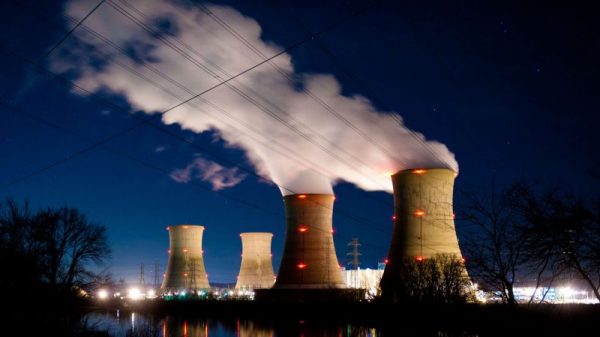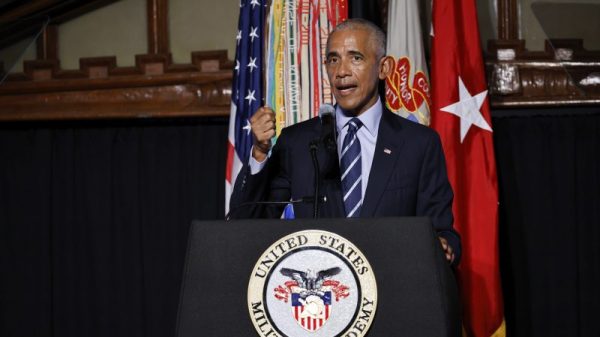US President Joe Biden signed the Prohibiting Russian Uranium Imports Act into law on Monday (May 13), effectively starting the process of ending US dependence on imported uranium supply.
“This new law reestablishes America’s leadership in the nuclear sector. It will help secure our energy sector for generations to come,” said National Security Advisor Jake Sullivan in a White House statement.
“And — building off the unprecedented US$2.72 billion in federal funding that Congress recently appropriated at the President’s request — it will jumpstart new enrichment capacity in the United States and send a clear message to industry that we are committed to long-term growth in our nuclear sector,” he continued.
The act aligns with multilateral goals established last December with US production allies, including Canada, France, Japan and the UK. They pledged to invest US$4.2 billion to expand uranium enrichment and conversion capacities.
The US’ reliance on Russian uranium dates back in 1993 under the Megatons to Megawatts program, which was established shortly after the Cold War. The initiative involved the purchase of 500 metric tons of uranium from dismantled Russian nuclear warheads, which was then converted into fuel for nuclear reactors.
The new legislation is set to change the status quo. With the backing of the federal government, the US has set its sights on sourcing its uranium needs locally, starting with the production of high-assay low-enriched uranium (HALEU) in Ohio.
Senate paves way for Russian ban
The Prohibiting Russian Uranium Imports Act garnered unanimous consent in the Senate on April 30.
The bipartisan bill, which received approval from the House of Representatives in December, includes provisions for waivers in the event that US nuclear reactors have trouble securing non-Russian supply. Moreover, it earmarks US$2.7 billion to bolster the development of the domestic uranium-processing industry.
According to 2023 data from the US Energy Information Administration, 12 percent of the country’s yearly uranium imports originated in Russia, while 25 percent of material was mined in Kazakhstan and 11 percent in Uzbekistan.
Uranium fuels nuclear reactors, playing a vital role in electricity generation. The US ban on Russian imports mirrors previous actions taken against the nation, such as the prohibition of Russian oil imports following the country’s invasion of Ukraine in 2022, alongside the implementation of price controls on select crude product exports.
The ban on Russian imports is expected to disrupt an estimated US$1 billion in annual trade flow to Russia. Replacing this supply is likely to be challenging, and could raise enriched uranium costs by up to 20 percent.
The statute, which will expire at the end of 2040, includes provisions allowing the Department of Energy (DOE) to issue waivers authorizing Russian uranium imports according to limits established in an anti-dumping agreement.
Senator John Barrasso, a Republican senator from Wyoming and a top figure on the Senate Energy Committee, emphasized the readiness of states like Wyoming to step in and fill the void left by Russian imports.
‘Our bipartisan legislation will help defund Russia’s war machine, revive American uranium production, and jumpstart investments in America’s nuclear fuel supply chain,’ noted the lawmaker in a press release.
Other efforts to ramp up US uranium supply
Work to produce HALEU in the US is reportedly already underway.
Last autumn, a facility in Ohio initiated the nation’s first domestic production of HALEU, albeit at a small scale. Now, with the support of the federal government, efforts are underway to expand domestic production capacity.
The DOE has offered private companies a minimum of US$2 million each to kickstart HALEU production, marking the second phase of a US$500 million allocation from Biden’s climate-spending law, the Inflation Reduction Act.
“Boosting our domestic uranium supply won’t just advance President Biden’s historic climate agenda, but also increase America’s energy security, create good-paying union jobs, and strengthen our economic competitiveness,” said Ali Zaidi, Biden’s national climate adviser, in a statement released earlier this year.
Speaking to CNBC in August 2022, Edward McGinnis, former chief executive of fuel-recycling Startup Curio, raised the potential of recycling nuclear waste to complement traditional uranium mining.
He called on the Senate and White House to champion measures to deploy nuclear waste recycling, describing it as a win-win solution that addresses both the nuclear waste problem and the need for domestic fuel production.
Securities Disclosure: I, Giann Liguid, hold no direct investment interest in any company mentioned in this article.







































